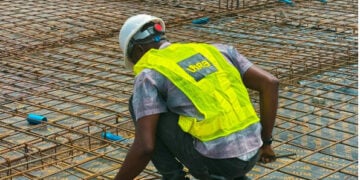Nigeria was a prime medical tourism hub in the 1960s. It is hard to believe but no less true. The destination, usually for both the rich and even royalty, was the University Teaching Hospital, Ibadan. But so much has changed since then.
Every year, countless Nigerians and other African elite travel to Europe, India and Saudi Arabia, and other overseas countries for medical care, spending billions of dollars in the process. Nigeria alone is estimated to have lost about $2.39 billion on medical tourism in 2024 alone, a significant financial outflow that highlights the pressing need for Africa to address and manage the economic impact of citizens seeking healthcare abroad.
What does this mean for Africa? Medical tourism and the attendant capital outflow not only drain resources; it stunts capacity building and skills transfer, stymies efficient healthcare service delivery, and ultimately exacerbates the healthcare gap on the continent. There is also the issue of brain drain and widening infrastructure gap as African medical practitioners migrate to the west due to poor health infrastructure and poor remuneration, thus aggravating an already bad healthcare situation.
Access to affordable healthcare and world class medical facilities remains a challenge in much of Africa where the Africa Health Agenda International Conference Commission has noted that more than 50% of the continent’s 1.3 billion people lack access to basic healthcare services.
The paucity of healthcare infrastructure and lack of access to healthcare in Africa is location agnostic with the challenge impacting both urban and rural dwellers with the latter bearing much of the brunt.
There has also emerged a two-tier health system despite attempts to operationalise rural healthcare initiatives. This means that those on the lower rung of the economic ladder end up dying from what should ideally be non-fatal health conditions.
The result is a resort to private medical healthcare locally or abroad for those who can afford it. The World Bank estimates that 50% of healthcare spend in Africa goes to private medical providers but they face limitations in terms of lack of cutting-edge medical equipment and technology for advanced medical interventions and manpower.
If health is indeed wealth, then Africa’s medical tourism junket is squandering much needed resources that could be channelled into enhancing healthcare infrastructure, healthcare delivery, capacity building and skills transfer.
Recent health emergencies like Ebola, COVID-19 and Mpox, seasonal outbreaks of cholera, Lassa fever and others as well as a rise in non-communicable diseases like cancer and cardiovascular diseases highlight not just the fact that Africa bears a disproportionate share of the global disease burden but focuses attention on the yawning gap in Africa’s healthcare systems.
The so-called scarcity nationalism and vaccine diplomacy which was evident during the COVID-19 pandemic when rich countries stockpiled and hoarded essential medical supplies and vaccines is a sobering reminder of why we must strive for our own centres of healthcare excellence.
This focuses renewed attention on calls for a decolonisation of the global health care system and infrastructure which continues to privilege the west while marginalising the global south. Africa must be independent politically, economically and health wise because entrusting our healthcare needs to others presents both security and economic risks to our continent.
To put this in context, global health spending reached $9.8 trillion in 2022—but low and lower-middle income countries received less than 3.2% of that amount. This disparity reflects a broader challenge: many African governments continue to invest relatively modestly in healthcare, allocating an average of just 7.4% of their national budgets.
This falls short of the 15% commitment made under the 2001 Abuja Declaration, where African Union member states pledged to prioritise health spending by allocating at least 15% of their national budgets to healthcare. While there has been some progress over the past two decades, the gap remains significant.
Looking ahead, growing pressures—including shifting geopolitical priorities, declining Official Development Assistance (ODA), shrinking foreign reserves, and rising debt—are likely to compound these challenges and make access to healthcare, including medical tourism, even more difficult.
There is an urgent need, now more than ever, to reinforce investments in resilient, local health systems that can withstand global shocks and meet the needs of African populations.
How can Africa course correct? Collaborative synergies between the government, private entities and other stakeholders should be encouraged even as African nations are urged to honour the 2001 Abuja Declaration.
The collaboration between the government and private entities should take the form of broad Public-Private Partnerships. An example is the African Medical Centre of Excellence (AMCE) Abuja, a tertiary-level multi-specialty medical institution developed by African Export-Import Bank (Afreximbank) in collaboration with King’s College Hospital, London with the support of the federal government of Nigeria.
The centre which commenced operations on June 5,2025, is expected to create around 3,000 jobs and serve more than 350,000 patients from Nigeria and other African nations in its first five years.
The vision for the AMCE is not just to provide top-notch healthcare, but to serve as a catalyst for the transformation of the African health sector. It is also making a bold statement to the world that Africa is finally taking its destiny in its hands in terms of healthcare sovereignty and contributions in setting global healthcare standards.
The AMCE is, therefore, more than just a crucial component of Afreximbank’s network of healthcare facilities which aim to address brain drain, decrease medical tourism, foster job creation and facilitate capacity building and skills transfer in the health sector.
It is a space for developing and supporting healthcare professionals as a hub of innovative research, development, and education delivering comprehensive services in oncology, haematology, cardiovascular care, and general medical and surgical services. Its African Life Sciences Foundation is expected to not just drive research into intractable “African diseases” like sickle cell and malaria which have hitherto received scant attention from western researchers, but also produce a cure in five to seven years
The success of AMCE Abuja will validate Afreximbank’s proof of concept and hopefully, open a new era signposting Nigeria and indeed Africa as a prime medical tourism hub by tackling the challenge of inadequate healthcare infrastructure and diagnostics facilities, saving the billions of dollars expended on outbound medical tourism, expanding research into diseases of interest to people of African descent and building an ecosystem that will outlive us all.





